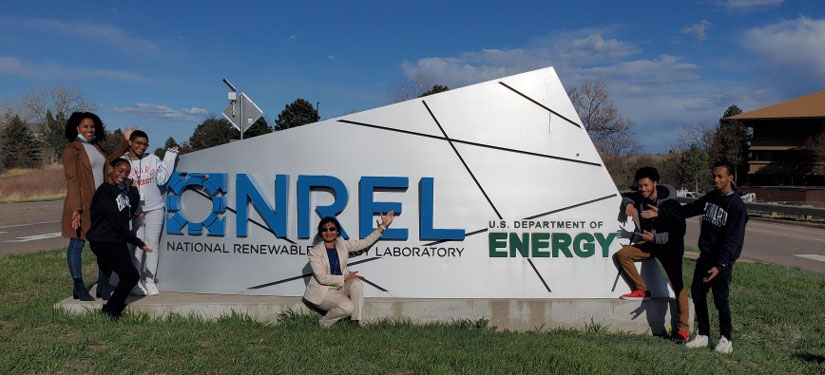Department of Energy's ZEDD Program Recognizes Institutions Preparing the Next Generation's Zero-Energy Workforce

In 2022, Nea Maloo, assistant professor in the Howard University Architecture Department, led a group of Howard students to participate in the Solar Decathlon Design Challenge for the first time in the university's history.
The experience was a positive one for the students, and Maloo wanted to offer similar opportunities to more students.
"Last year was the first time Howard was in the Solar Design Challenge," Maloo said. "We did it as an extracurricular activity. It was a tremendous journey and experience that enriched me and my students. I wanted to institutionalize it, so every year my students could get to do something like this."
The U.S. Department of Energy's (DOE's) Zero Energy Design Designation (ZEDD) provided that opportunity. The designation recognizes post-secondary institutions for their outstanding three-year commitment to provide students with building science education and opportunities to deploy zero-energy design skills through hands-on design projects.
At Howard, Maloo created a high-performance building course to meet the ZEDD curriculum requirements.
"We got the ZEDD designation and interest has grown so much," Maloo said. "We had two entries in the (Solar Decathlon) competition, and it's part of a class now, so students are getting credit. Having ZEDD has helped me as a professor to create new opportunities for students."
That is precisely the intent of the ZEDD program. The White House has set a goal of reaching a net-zero emissions economy by 2050, and buildings will play a significant role in reaching that goal.
"Building professionals have to be prepared to design and construct high-efficiency, low-carbon buildings that are powered by renewables," said Jaime Van Mourik, DOE lead for the ZEDD program. "ZEDD recognizes institutions that are preparing students for 21st-century buildings careers."
The inaugural cohort of ZEDD designees is a diverse group of two- and four- year institutions and programs of study including building science disciplines, degree and certificate programs, and specialty tracks. "Reaching a net-zero emissions economy is complex, and requires a multidisciplinary approach," Van Mourik said. "ZEDD recognizes institutions that are committed to providing the latest zero energy strategies and technologies in their curriculum and also combining theory and practice by having students immediately apply what they're learning in the classroom to their own zero-energy projects."
Schools interested in being recognized by DOE must demonstrate a commitment to preparing students for a zero-carbon future by offering a building science education curriculum within their programs of study that showcases best practices in zero-energy design and requiring a zero-energy design practicum. Full requirements are available online.
DOE is seeking applicants for the 2023 ZEDD cohort. The online application is open through July 7. For questions about the program or application process, email [email protected].
This article has been updated to reflect an editorial change made after its original publication.
Last Updated May 28, 2025
